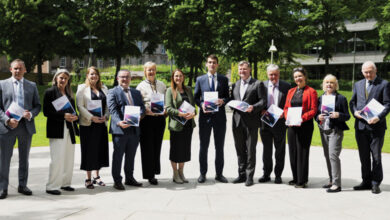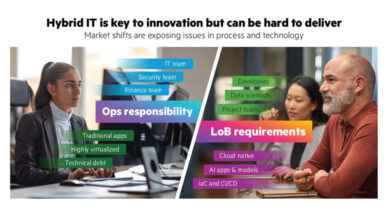A world-wide threat

At the 13th UN Congress on crime prevention and criminal justice in Doha, the rising threat of cyber-crime was high on the agenda.
Every five years policy-makers and practitioners working in crime prevention and criminal justice come together at the UN Crime Congress to discuss global crime threats and set the standards of the UN on crime prevention and criminal justice. The conference held in Doha in 2015 marked the 60th anniversary of the crime conference. The United Nations Crime Congress is the world’s largest and most diverse gathering of governments, civil society, academia and experts in crime prevention and criminal justice and at this conference new and emerging forms of crime were high on the agenda.
The speed of technological advancement, increasing globalization and the exponential growth of global markets have created opportunities for criminal activities, often with a low risk of detection and using new forms of anonymity. The conference was told that crime is continually evolving. Adapting organised crime, illicit drug trafficking and terrorism have dominated the past two decades but cyber-crime is now coming to the fore.
Cyber-crime, may not affect all countries at the same rate or with the same severity but by the time it is recognised as a transnational threat, the problem may have already become too extensive to tackle. With the rise of technology, local problems can easily become global problems. Almost one billion people use the internet allowing for connections between individuals across a wide geographical area, bringing many socioeconomic benefits but also conversely many criminal activities.
With the anonymity of the internet often incentivising criminal activity, people commit crimes in cyberspace they would not normally commit otherwise. Criminals can gain access to a large number of targets via the internet such as banking, shopping and social networking. Social networks can also be used by criminals to pass information, and “tricks of the trade” to others to use, even if they haven’t met them.
There are many ways information and communication technologies are driving new and emerging crimes. Consumer financial fraud has now become transnational with the now commonplace use of online payments. Criminal groups are evolving their practice too, they are operating in new ways and hiring specialists to preform operations not covered by their existing knowledge and skills. This leads to the creation of a more transient and less structured organisation that is harder to keep track of and may, the congress fears, be how serious organised crime is perpetuated in the future.
Aiding law enforcement
However, despite the obvious dangers posed by these advancements in technology, they can actually help investigators too. There is a wealth of information available publicly from social network sites and chat forums as well as stored on electronic devices such as smart phones, which can be seized during law enforcement operations. This information can provide a crucial starting point for criminal investigations.
Similarly, an effective preventive measure is to ensure that awareness amongst potential victims is high. The level of sophistication of emerging crimes can pose challenges to even the most financially robust nations and companies, never mind those countries with limited resources. To tackle this global problem the congress believes that globally harmonising legislation will help to prevent and combat emerging crimes. There will also be a need to devise innovative ways of increasing global electronic connectivity for investigative purpose.
 Globalisation and new technological developments will drive criminal innovation forward and meeting these challenges will require constant efforts to prevent and reduce corruption, to provide sustainable livelihoods and to address poverty and inequality.
Globalisation and new technological developments will drive criminal innovation forward and meeting these challenges will require constant efforts to prevent and reduce corruption, to provide sustainable livelihoods and to address poverty and inequality.
Established threat
Addressing the conference, Chief of the Organised Crime and Illicit Trafficking Branch in the UN Office on Drugs and Crime (UNODC), Loide Lungameni said that cyber-crime had become an established threat that threatened both the security of states and individuals like. She also warned that with rapid advances in technology and ever increasing global connectivity, it will become hard to imagine a form of crime that does not involve electronic evidence.
According to the UNODC, threats to internet safety have increased dramatically in recent years with cyber-crime now affecting more than 431 adult victims globally. The most common form of cyber-crime is identity related. This type of crime occurs through attacks that deceive internet users into giving their personal information (phishing attacks), malware and hacking. Criminals tend to use these methods to steal credit card information and money though the internet has also become a breeding ground for criminal activity related to copyright and intellectual property rights.
Speaking at the conference, senior counsel for the World Bank, Jinyoung Chung admitted cyber-crime is not an easy issue to tackle but must be tackled because it can cause other risks. He added that the banks mission is to build capacity among policymakers, legislators, public prosecutors, investigators and civil society to build a unified approach to tackle cyber-crime.
“We are trying to achieve this goal through synthesizing international best practice in these areas. We have developed a virtual library which gathers all the information available in relation tocyber-crime and it will be available to the public,” Chung said.
The head of Cyber-crime Program Office in Europe, Alexander Seger claimed that building capacity is the only way to really address the problem.
“We have seen a lot of progress in that field over the last five years, how donors have opened up their financing instruments to support capacity building programs”, he said. “Capacity building on cyber-crime contributes to human rights and the rule of law, contributes to human development and democratic governance.”
It isn’t just the public sector that are focused on tackling the problem of cyber-crime, the head of Microsoft’s Digital Crime Unit for the Middle East and Africa, Dale Waterman confirmed that his team is focussing its efforts on working with the young, the less tech savvy and the elderly to educate them on threats posed by malware and other more sinister dangers. “We are trying, ultimately, to create a safer digital world for our customers,” Waterman concluded.





